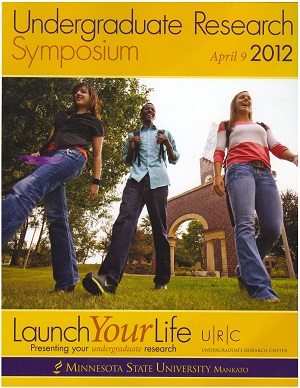Perspectives of Pre-Service and In-Service Special Education Teachers About Homework Interventions
Location
CSU Ballroom
Start Date
9-4-2012 1:00 PM
End Date
9-4-2012 2:30 PM
Student's Major
Psychology
Student's College
Social and Behavioral Sciences
Mentor's Name
Marcia Sytsma
Mentor's Department
Psychology
Mentor's College
Social and Behavioral Sciences
Second Mentor's Name
Alexandra Panahon
Second Mentor's Department
Psychology
Second Mentor's College
Social and Behavioral Sciences
Third Mentor's Name
Carlos Panahon
Third Mentor's Deparment
Psychology
Third Mentor's College
Social and Behavioral Sciences
Description
This purpose of this study was to integrate the research on empirically supported strategies for improving homework with the perspectives and attitudes of teachers who are expected to implement such strategies. Primary focus was on gathering and summarizing descriptive statistics of the types of interventions used for specific student populations throughout K-12 education. Data were obtained from graduate students enrolled in the Special Education program at Minnesota State University. Participants were asked to specify the types of homework support strategies they have implemented and indicate those students they think will benefit most from the particular strategies. Finally, participants were asked about their willingness to implement different strategies and their estimates of both the feasibility and barriers to implementation. It is hypothesized that only a subset of empirically supported strategies will be considered for use by in-service teachers. Also, it is expected that different strategies will be judged to be applicable to different grade levels of students requiring accommodations (e.g., kindergarten through fifth grade versus sixth through eighth grade versus high school students). Providing a list of commonly implemented strategies for homework problems will help teachers and other educational professionals incorporate standard practice concepts with best practice.
Perspectives of Pre-Service and In-Service Special Education Teachers About Homework Interventions
CSU Ballroom
This purpose of this study was to integrate the research on empirically supported strategies for improving homework with the perspectives and attitudes of teachers who are expected to implement such strategies. Primary focus was on gathering and summarizing descriptive statistics of the types of interventions used for specific student populations throughout K-12 education. Data were obtained from graduate students enrolled in the Special Education program at Minnesota State University. Participants were asked to specify the types of homework support strategies they have implemented and indicate those students they think will benefit most from the particular strategies. Finally, participants were asked about their willingness to implement different strategies and their estimates of both the feasibility and barriers to implementation. It is hypothesized that only a subset of empirically supported strategies will be considered for use by in-service teachers. Also, it is expected that different strategies will be judged to be applicable to different grade levels of students requiring accommodations (e.g., kindergarten through fifth grade versus sixth through eighth grade versus high school students). Providing a list of commonly implemented strategies for homework problems will help teachers and other educational professionals incorporate standard practice concepts with best practice.
Recommended Citation
Walker, Brenda and MaryBeth Armstrong. "Perspectives of Pre-Service and In-Service Special Education Teachers About Homework Interventions." Undergraduate Research Symposium, Mankato, MN, April 9, 2012.
https://cornerstone.lib.mnsu.edu/urs/2012/poster-session-B/34




